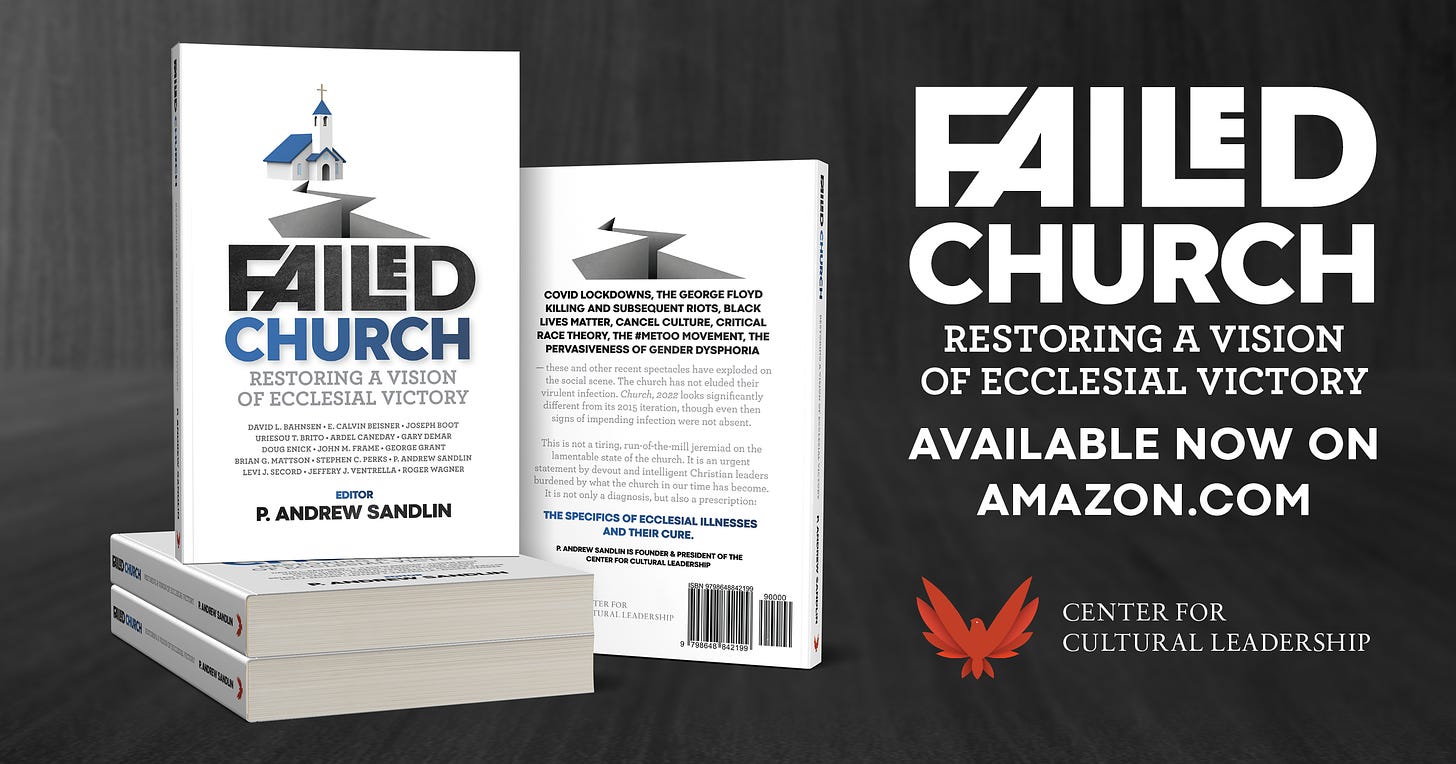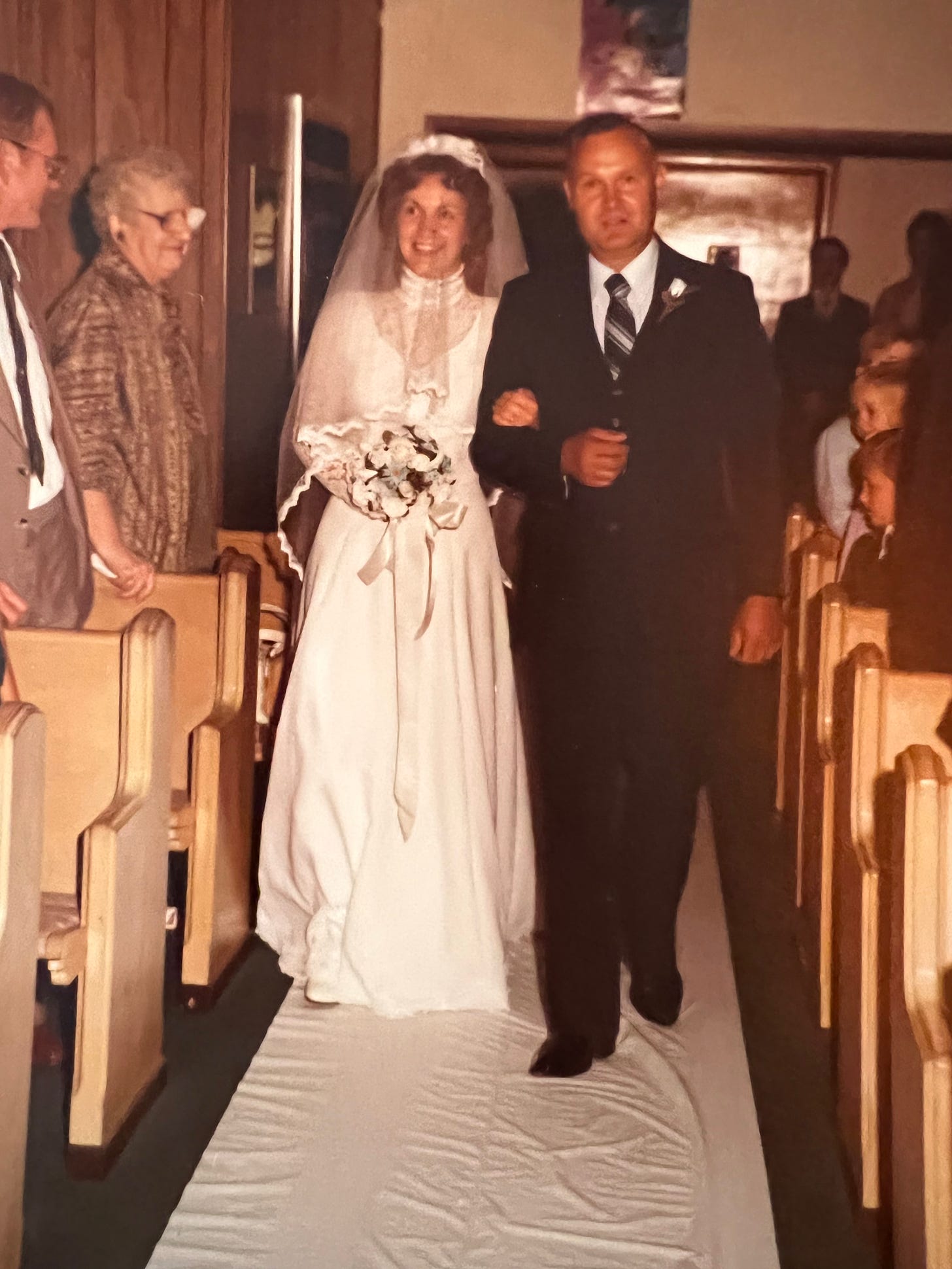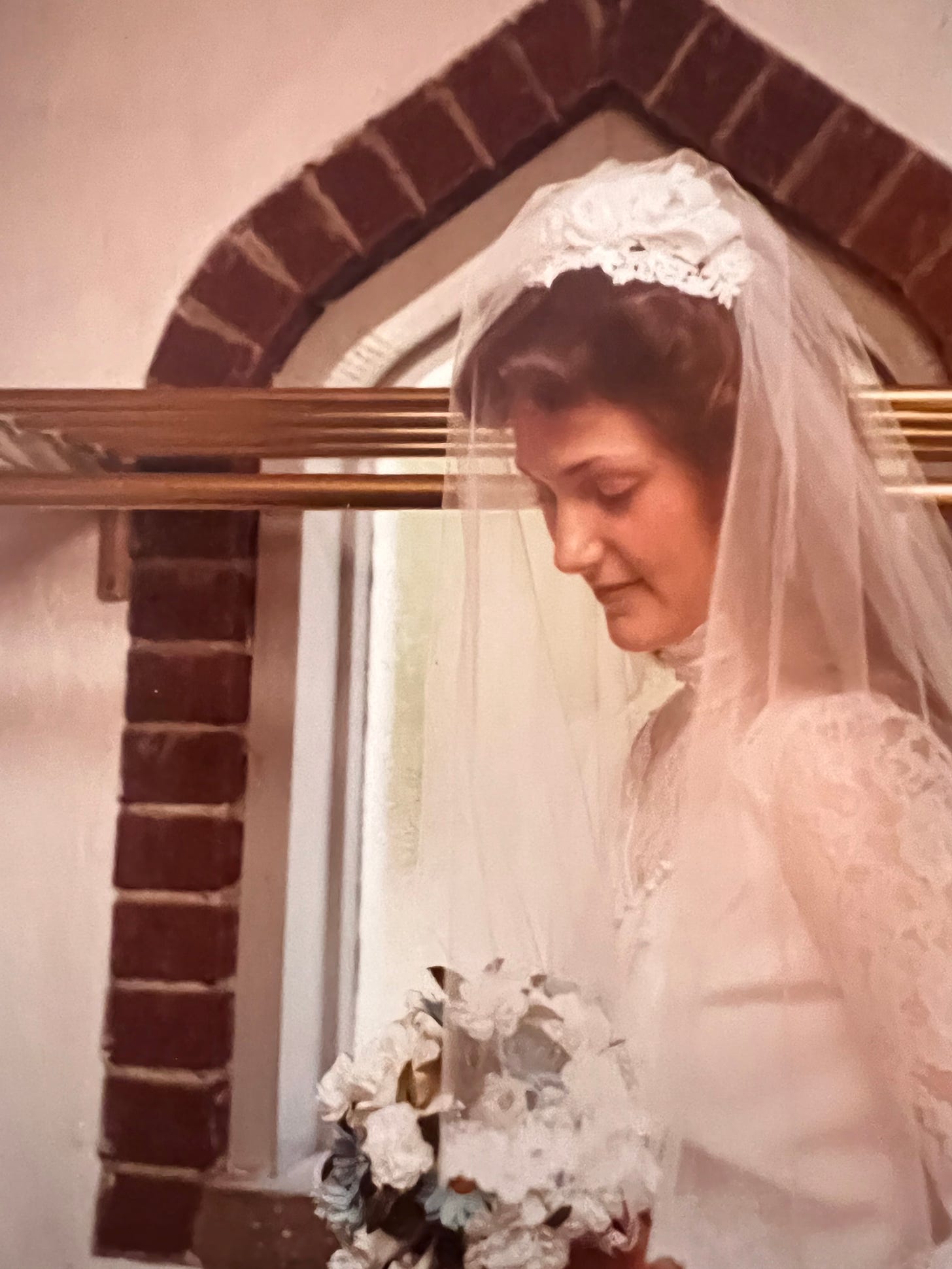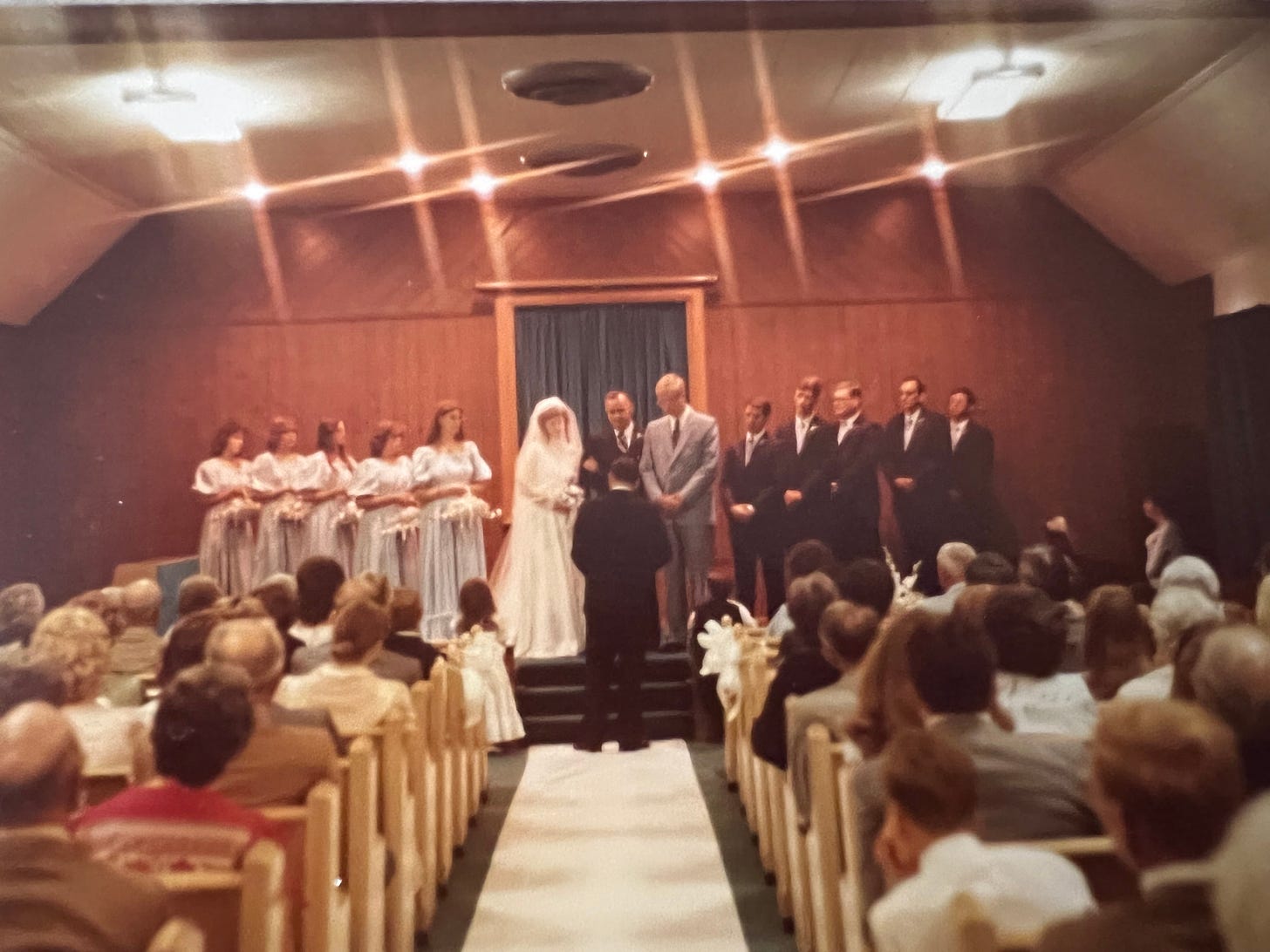Dear friends and supporters:
This month Sharon and I celebrate our 40th wedding anniversary. By year’s end I finally hope to release my Creational Marriage: Issues and Controversies. My mind is naturally on marriage and its ever-present enemies in our culture, and I’ve decided to address marriage here in CultureChange four times this month. (Next week’s title: “Marriage Is Not Christian.”)
If the generations previous to mine occasionally supported marrying too young, the error today is precisely in the opposite direction. I was married while still 19 years old, my wife Sharon was 21, and my mother was 18 when she married my father. All of us were fully prepared for marriage. This youthful matrimony was atypical even for the time. Note:
The median age at first marriage for women was 28 years in 2015-2019, up from 26.3 in 2006-2010. The median age at first marriage for men was 29.9 years in 2015-2019, up from 28.1 in 2006-2010.
Rewind about a century:
In 1920, the average woman got married at 21.2 years old while men married at 24.6 years of age. While men have historically gotten married later than women, the age gap between them is closing. On average, women are two years younger than men when getting married for the first time.
Let’s Have More Teen Pregnancy
When 20 years ago leading conservative Frederica Mathewes-Green wrote “Let’s Have More Teen Pregnancy,” she irked both conservatives and liberals — conservatives, who were on their abstinence crusade, and liberals, who wanted more free sex and free condoms. Her point is that in most of human history youngish marriage and childbearing were the rule (by today’s reckoning), and that our predecessors were wiser than we. There are great reasons for incentivizing early marriage and childrearing, and very bad ones for delaying, as we increasingly are today.
She marshals several reasons for youngish marriage, starting with the physical stamina of both young dads and moms, particularly the childbearing capacity of the latter. She concludes:
Teen pregnancy is not the problem. Unwed teen pregnancy is the problem. It’s childbearing outside marriage that causes all the trouble. Restore an environment that supports younger marriage, and you won’t have to fight biology for a decade or more.
Although religious, social, and economic transformations all contribute to today’s comparative delay in marriage, the elephant-in-the-room rationale is simply the dramatic increase in radical individual autonomy (self-law). Of course, human autonomy has been around since Genesis 3, but what has changed in the West in recent centuries, and particularly in the 20th and 21st centuries, has been its reification, its elevation to an overriding life principle. The goal of human existence is to live The Good Life, which is widely identified with the radically autonomous life. We’re a law to ourselves, no one or nothing may govern us — except a political order whose job is to guarantee our autonomy. This is the principal role of the state in Leftist culture (see “The Erotic Regime”). The state is not an end in itself, as it was with the ancient empires and most modern nation-states; rather, it is a tool designed to secure radical human autonomy, mostly by preventing the family and church from making demands, a fact more libertarians would do well to recognize.
Order here.
Marriage stands as an antithesis to this autonomy. Even in its modern, effete, egalitarian forms, it is a crimp on the untethered, ungoverned, free-acting individual. Spouses, by contrast, covenant to bind themselves to one another. A standard Christian wedding vow for centuries included words like these:
I take thee to be my wedded [spouse], to have and to hold from this day forward, for better for worse, for richer for poorer, in sickness and in health, to love and to cherish, till death us do part, according to God’s holy ordinance; and thereto I plight thee my troth [make a covenant marital pledge]. With this Ring I thee wed: In the Name of the Father, and of the Son, and of the Holy Ghost. Amen.
To marry is to repudiate autonomy at its very roots. Many years ago I attended a wedding a seasoned pastor conducted for his son. I remember almost nothing about the wedding except a striking exhortation to his faithful son (I’m paraphrasing): “Today you’re publicly acknowledging that you’re insufficient of yourself.” It was an exhortation appropriate for any wedding, Christian or not, and just as apt for brides as grooms. Aside from allegiance to Christ for salvation, no act strikes more viciously at the heart of radical human autonomy than: getting married.
This is why, although it is incorrect to assume that marriage as an institution is dying (as a creational institution, marriage in the preconsummate world can never die), it is correct that an increasing number people believe marriage is irrelevant. If The Good Life is the autonomous life, marriage in any conventional sense cannot include the good life.
Never Changing Alone
We all know of individuals “in love” as teenagers or early twentysomethings who “broke up” and, years later, after marriage to somebody else, or not, get back together. Many assume they can rekindle their youthful romance. This is an opium-laced pipe dream. The two have changed, and they’ve changed while apart from one another in their own autonomy. Rarely do these revived love-tangles work, because the individualized changes assure the failure to recreate the relational unity of lost youth.
A great advantage of marrying while young is not that you and your spouse won’t change (everybody changes, and should change, and must change). Rather, it is that you change together. Your own changes create changes in your spouse, and vice versa. Change is communal, not merely, or even mainly, individual.
Mysteriously, the Bible teaches that those joined in one flesh sexually become part of one another (Ephesians 5:31). It is useless to deny there’s not an ontological (meaning: one’s being) element to this union, even if we don’t affirm (as I do not) the Roman Catholic idea of marriage as a sacrament. Marriage does create an ontological change of some sort. This is one reason, by the way, that adultery and fornication are so horrific (1 Corinthians 6:15–16). You are in some sense ontically united to every person with whom you’ve had intercourse. If the implications of this assertion deeply disturb you, you’re thinking biblically.
Both triumphs and tragedies invade the lives of all single adults. But they impact every individual differently. In marriage, however, while the impact on husband and wife is not identical, they’re forced to share that impact, and both triumph and tragedy, as well as the ordinary, simple vicissitudes of life, remake them both, together.
Marrying as a young adult bequeaths the gratifying benefit of living almost one’s entire adulthood never facing life and its inevitable changes unaccompanied. It doesn’t merely mean that there’s always someone there to help. It means the person there to help is either benefiting or suffering (or both) from what you are, when you are.
A dear friend related to me events from one of the Survivor reality TV shows (I can assure you that I never watch them myself). She noticed that when couples were teamed together, married couples tended to navigate the numerous challenges much better than unmarried couples. When a hardship arose, unmarried couples would often argue, bicker, and blame — like good radically autonomous moderns.
On the other hand, the spouses’ attitude was: “OK, let’s just decide how we can work this out together.”
And that is one of the great advantages of marrying young. You get to spend almost the entirety of your adult life saying: how can we work this out together?
Conclusion
Tragically many young Christian single adults wishing to marry can’t find suitable spouses. It takes two to marry, and too many young singles wish to postpone marriage to prepare for a lucrative, self-fulfilling career; travel to faraway and exotic places; enjoy numerous, guilt- and obligation-free “hook ups”; and in general revel in their radical autonomy. Marriage comes later, if at all. This rebellion afflicts even many young single Christians (read: faux Christians)
How to counter this tragedy? One way is for older married Christians in this rebellious culture to create a counter-environment hospitable to youngish marriages. Provide plenty of venues for older teenagers and young twentysomethings to meet potential spouses. Hold up marriage and not singleness as an ideal (see “The Evangelical Singleness-Celibacy Paradigm Is Wrong”). Provide plenty of informal and formal premarital counseling. After young adults do marry, stand by at moment’s notice to help them spiritually, emotionally, and financially. Encourage childbearing. Provide financial gifts and loans to deserving young couples. Offer to babysit for young families. Make the church welcoming for them. Shepherd them, not just as individuals, but as marriages, along life’s path.
Single adults will resume marrying very young when society, particularly Christians, creates an environment hospitable to youngish marriages.
Incentivizing youngish marriages is an investment in the future of, not just Christianity, but civilization itself.
Will you consider a tax-deductible donation to CCL via PayPal or Venmo? Or mail a check to CCL, Box 100, Coulterville, CA 95311. God uses you to keep us going — and expanding.
Personal
Last week we finally arrived home from a grueling but rewarding late spring and summer travel schedule, which included Ezra Institute lectures in both western and eastern Canada, and my dear mother-in-law’s memorial service in western Pennsylvania. We’re home now where I hope to catch up on some writing and prepare for fall 2022 and winter 2023 travel. Here are more pictures from our wedding, August 7, 1982.
Yours with much gratitude,
Founder & President, Center for Cultural Leadership
Creational Worldview: Foundation of Thinking Christianly
To think correctly as a Christian you must first think correctly about creation.
Listen here.
More great stuff:
The Center for Cultural Leadership site is here.
My Amazon author page (print and digital) is here.
You can find my sermons and lectures at my YouTube channel.
Sign up to get my blog updates here.
Here’s my Twitter feed.
If you want to get the free exclusive hard copy publication Christian Culture, please send me a Facebook private message.
The CCL phone number is 831-420-7230.
The mailing address is:
Center for Cultural Leadership
P. O. Box 100
Coulterville, CA 95311









